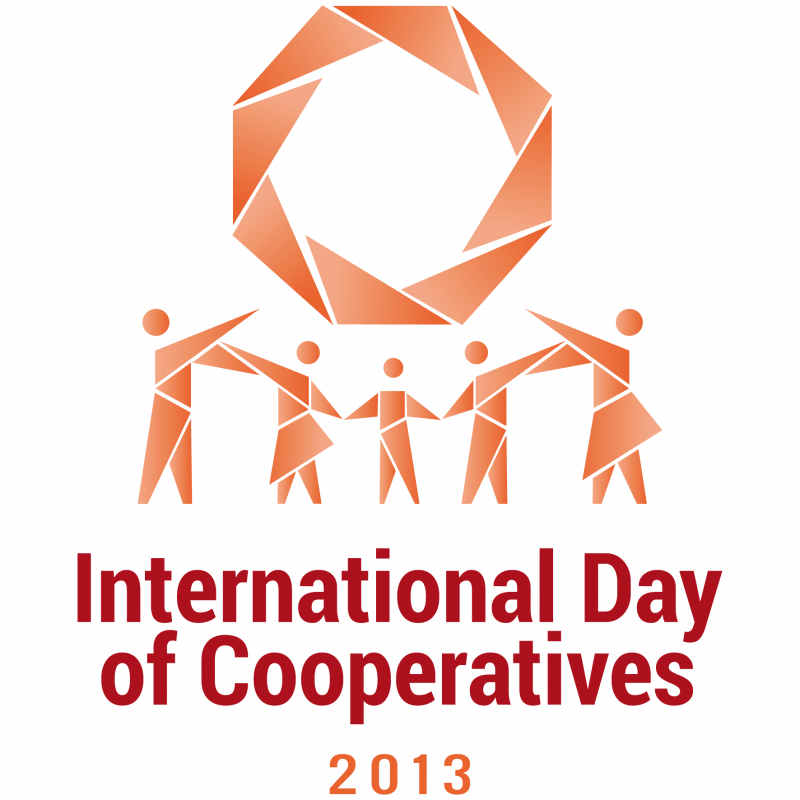
Co-operators around the world are set to celebrate the Movement's annual 'International Co-operative Day' on 6 July.
Many events are taking place around the world, including the United Kingdom, United States, Canada and Mexico. Co-operators can promote their activities through ica.coop and other channels from the International Co-operative Alliance, by clicking here.
In advance of 6 July celebration, and in line with the year's theme — 'Co-operative Enterprise Remains Strong in Times of Crisis' — the International Labour Organization, the Food and Agriculture Organization (FAO) of the United Nations and the World Farmers’ Organisation have released messages supporting the movement.
Guy Ryder, Director-General of the ILO, said the organisation is pleased to celebrate the day and believed the theme is a “positive and encouraging affirmation at a time when confidence in enterprises and their respect for basic human values and ethical principles has often been badly shaken”.
He said: “Framed and aggravated by the financial and economic crisis, the crisis in the world of work which ranges from unemployment especially among youth, to unfairness and inequality in the labour market and the widespread lack of social protection, along with food and fuel crises, the impact of climate change and natural disasters, all risk generating hopelessness, helplessness and a pervasive sense of injustice.
“The celebration of International Co-operative Day is a welcome reminder that solidarity generates strength and the capacity to build, and that effective organisational and business models can indeed be founded on values of justice and solidarity.
Mr Ryder added: “Across continents, co-operative enterprises have been born out of crisis situations, responding directly to the needs of their members and are able to reach the poorest people. Today when their ideals are put into action, they continue to show their efficacy.
“Underpinning the sustainability of co-operative enterprises are the values and principles that inform business strategy, proximity between co-operatives and their members, practices that foster a service-orientation rather than self-enrichment of managers, democratic governance, and a long-term orientation centred on members’ security. The same factors explain the relative longevity of co-operatives compared to conventional enterprises.”
The FAO statement said “co-operatives are crucial to empowering rural producers including small-holder farmers”. It added that co-operatives help build a “solidarity economy” by focusing on serving members and communities.
“Co-operatives are also known to be effective agents for empowering rural women and youth, providing skills and experience that boost their economic independence and social standing,” added the statement.
The Co-operatives Day statement continued: “Evidence shows that those countries with strong co-operatives and producer organizations were able to overcome constraints and mitigate the negative effects of food and other crises. Strong producer organizations have helped to fill a void.
“In recent years, a broad variety of organisational arrangements have emerged, in response to small scale producers’ constraints to better respond to crisis situations. These organisations have been able to overcome market and policy constraints by providing members with access to a range of assets and services. For instance, they can reduce costs to farmers by allowing them to purchase in groups and benefit from better retail prices of agricultural inputs.”
Concluded the statement: “Strong co-operatives and producer organisations are viable business models that are worth investing in. They can play a key role in strengthening the capacities of the smallholder farmers who are the largest investors in agricultural activities.”
The statement from the World Farmers’ Organisation said the organisation believes that without co-operatives farmers could not realise economic benefits, such as improving bargaining power in the marketplace, reducing costs and benefiting from collective marketing. It continued: "In developing countries, farmers organisations and co-operatives play an important role in providing farmers, in particular smallholder farmers, a variety of services such as training in natural resource management as well as better access to information, technologies, innovations etc.
"In this context the co-operative system represents a fundamental tool for eradicating hunger and reducing poverty, being a catalyst for socially-inclusive development (jobs and income generation). They also represent a powerful means for supporting marginalised groups, such as youth and women."
• Please make sure to tell us how you celebrated.




